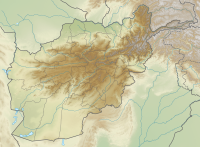
Quick Facts
Biography
David P. Gilkey (ca. 1965 - June 5, 2015) was an award-winning U.S. photojournalist for National Public Radio in the United States, for whom he covered disasters, epidemics and war. Gilkey and his native Afghani handler Zabihullah Tamanna were both killed during the War in Afghanistan (2015–present) by a rocket grenade while covering a skirmish between the Taliban and Afghan forces in the vicinity of Marjah, Helmand Province, Afghanistan.
Personal
David Gilkey was born in Portland, Oregon, and he is the son of Alyda Gilkey and Richard (Dick) Gilkey. As a child, Gilkey wanted to be a truck driver but he took up photography because his father had a dark room and taught David how to use a camera at an early age. He graduated from the class of 1985 from Woodrow Wilson High School in his hometown. Gilkey pursued his interest in photography in the mid-1980s when he went to study photojournalism at Oregon State and was a photojournalist for the The Daily Barometer, the OSU student newspaper, but he did not complete his studies. Gilkey, who resided in Portland, Oregon, was 50 years old when he was killed in a combat zone.
Career
After an internship with Boulder Daily Camera, David Gilkey was hired by the Detroit Free Press in 1996 and worked there for the Knight Ridder media company for 11 years. In 2007, he joined National Public Radio as a staff photographer and video editor. For NPR, Gilkey continuously covered wars and conflicts in countries, such as Afghanistan, Iraq, Israel/Palestine, and Gaza. Over the span of almost 20 years, Gilkey photographed events such as the ending of the apartheid regime in South Africa, the earthquake in Haiti, and the Ebola incident in Liberia.
Death

David Gilkey was taking pictures and covering stories of war-related events in Afghanistan around the time of his death. Multiple attacks were happening between the Afghan military and Taliban fighters, and so Gilkey traveled to Marjah, located in southern Afghanistan, to cover the conflict. Gilkey was traveling with the Afghan military to cover fights near Marjah. On June 5, 2016, a rocket-propelled grenade fired by the Taliban hit the Afghan Army vehicle that Gilkey shared with his native handler Zahihullah Tamanna, and an unknown Afghan army driver. The explosion caused the Humvee to burst into flames and killed Gilkey and the two others. A second vehicle was following behind Gilkey's, but this group was not harmed in the incident.
Context
At the time of Gilkey's death, the United States has been in war in Afghanistan for around 15 years although its involvement can be traced back to 1979 when the former Soviet Union invaded the country and the United States armed the Afghanistan rebels, which later gave rise to the Taliban. After the terrorist attack on September 11, 2001, the United States led by President George W. Bush attacked Afghanistan and the Taliban leadership for harboring Al-Qaeda and its leader Osama bin Laden. The United States involvement in Afghanistan entered a new phase when President Barack Obama began to draw down troops and Afghanistan entered talks with the enemy. During summer 2015, Taliban and Afghan forces were fighting for Kunduz, and the Taliban managed to secure control there. Gilkey and his Afghani handler were covering the war during this new phase.
Impact
Since the War in Afghanistan began, over 26 journalists were killed and Gilkey and Tamanna became the 27th and 28th journalist to be killed there, according to the Committee to Protect Journalists.
Reactions
After Gilkey and Tamanna wer killed, many of their colleagues at NPR paid tribute to the pair but especially Gilkey. According to Tom Goldman, "David was engaged, and you can see the care, interest, and love of the city through his work. He was a journalist and artist, for whatever the subject. A kind person as well. Quite a mix."
Another representative from the Detroit Free Press, Nancy Andrews, a director, said, “David could do work to make you weep, to make you feel. He could find the beauty in the horror."
Irina Bokova, director-general of United Nations Educational, Scientific and Cultural Organization, said, "I condemn the attack that claimed the lives of David Gilkey and Zabihullah Tamanna. The right of media workers to exercise their professional duties in safe conditions must be recognized in the interest of society as a whole."
Awards
David Gilkey received several awards for his work. He was named Michigan Photographer of the year in 2004 by the Michigan Press Photographers Association. In 2007, Gilkey received the Free Press Award, also referred to as the National Emmy Award, for his inspiring video series. This video was referred to as "Band of Brothers," which covered the deployment of marines in Iraq. He also received the 2010 George Polk Award for his coverage of the U.S. military and its treatment of the wounded. He was presented with the Still Photographer of the Year Award in 2011. He won the Peabody Award and Edward R. Murrow Award (Corporation for Public Broadcasting) for his coverage of the Ebola epidemic.
